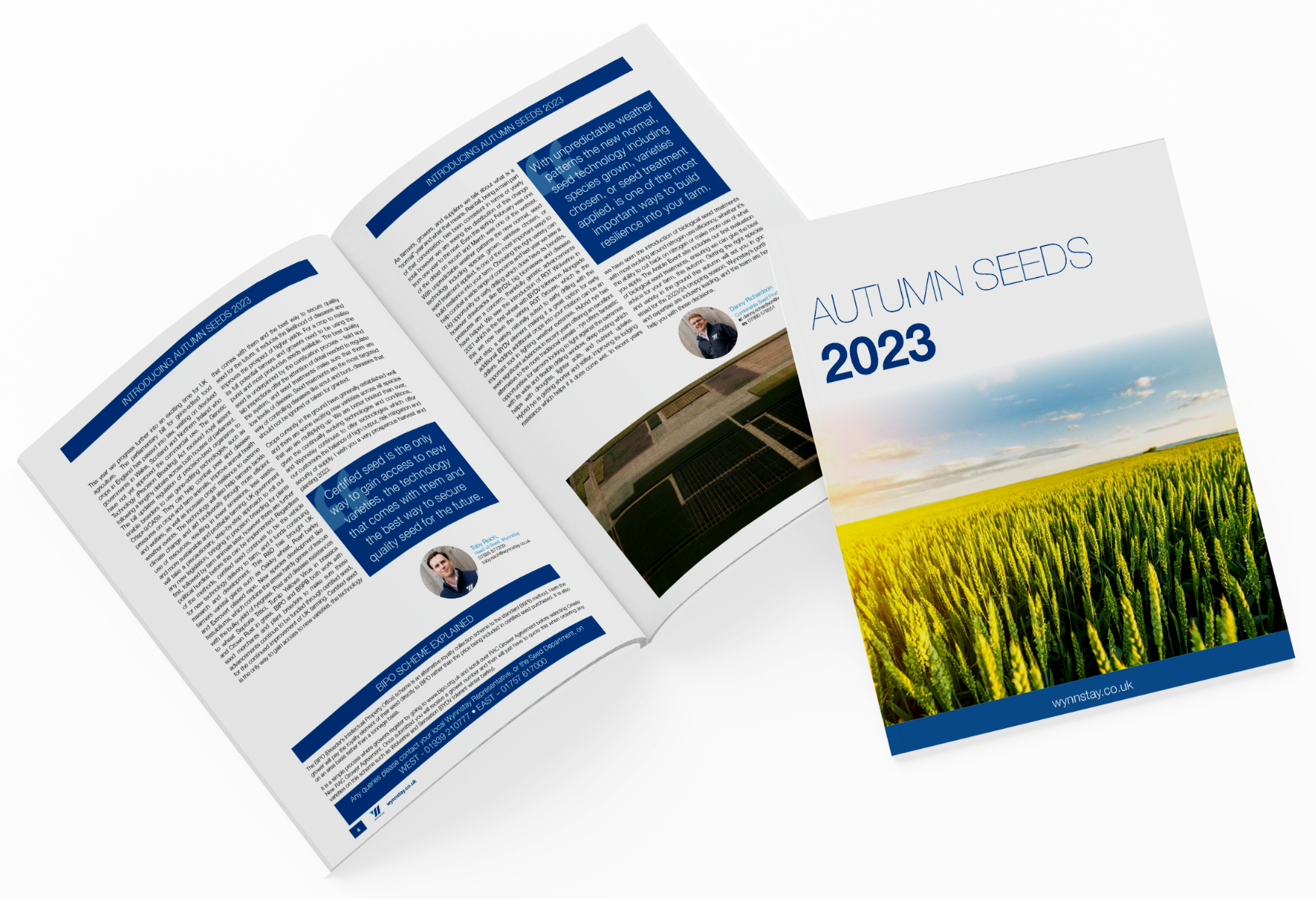Working together with the Crop Environment Research Centre (CERC)
Wynnstay seeds is built on a proud history of understanding our farming customers and supplying the best products and service to them. Agriculture is a vital UK industry, growing its influence, and the technology that we adopt shapes the future of food production. For this reason, Wynnstay seeds is excited to be working with the Crop Environment Research Centre (CERC) at Harper Adams University to run a seed technology from autumn 2020 to harvest 2021. CERC is a self-sufficient, independent trials company, providing services to the government, farmer-funded bodies, and private clients, as well as home to Harper’s in-house crop and environment research.
How Can I Benefit from Seed Treatment?
With increased pressure on UK farms to produce a diverse range of crops in an increasingly harsher climate, the aim of this work will be to monitor the interaction between plant species and a combination of seed-applied fungicide and biostimulant treatments.
Seed treatments can offset the problems caused by changeable weather, as well as help fight pest and pathogens that harm crops in the early stages of emergence, both by damaging young plants and, in many crops, by acting as vectors of viruses. Seed treatments also happen to be one of the safest, effective, and cost-efficient ways to protect an establishing crop. This technology has adapted and changed over recent years however, no longer simply protecting, but now enhancing the plant’s growth, nutrient acquisition and improving yield and quality.
With results from the trials coming in throughout the year and finally in the yield results at harvest, the Wynnstay team will be able to demonstrate the first-hand experience of emergence, establishment, plant counts, crop vigour, yield, and quality from the various treatments available to our customers.
Single-purpose dressings, such as Redigo Pro, Fountain and Rancona i-Mix, remain vital to protecting seeds and emerging crops from the likes of bunt leaf stripe, fusarium, loose smut and seedling blights. We must not become complacent about these treatments as these are what continue to keep diseases like loose smut at bay and give the crops their best chance of success right from the get-go.
In terms of Take-All control, we have seen an increase in the uptake in Latitude seed dressing both on wheat and barley in second and continuous wheats. Certis have shown that there are benefits of using Latitude for second or third cereals drilled before the end of October. With the main benefit being on wheat but with barley also showing a yield response to the treatment. With more spring barley in the rotation at the moment, it is also worth using Latitude on wheat drilled after this.
A new addition to Autumn Cereal Seed Treatments
There is one new addition this year to autumn cereal seed treatments. BASF have gained label approval for Kinto Plus, containing triticonazole, fluxapyroxad and fludioxonil; this treatment shows efficacy against a wide spectrum of seed and soil-borne diseases, as well as claiming growth-promoting effects to the crop. We see this as a comparative treatment to Vibrance Duo but while we assess the use of this product for the next year, however, we continue to recommend Vibrance Duo. It’s proven to increase establishment, vigour, tillering and plant mass so will continue to be our primary growth-enhancing treatment offered this autumn.












